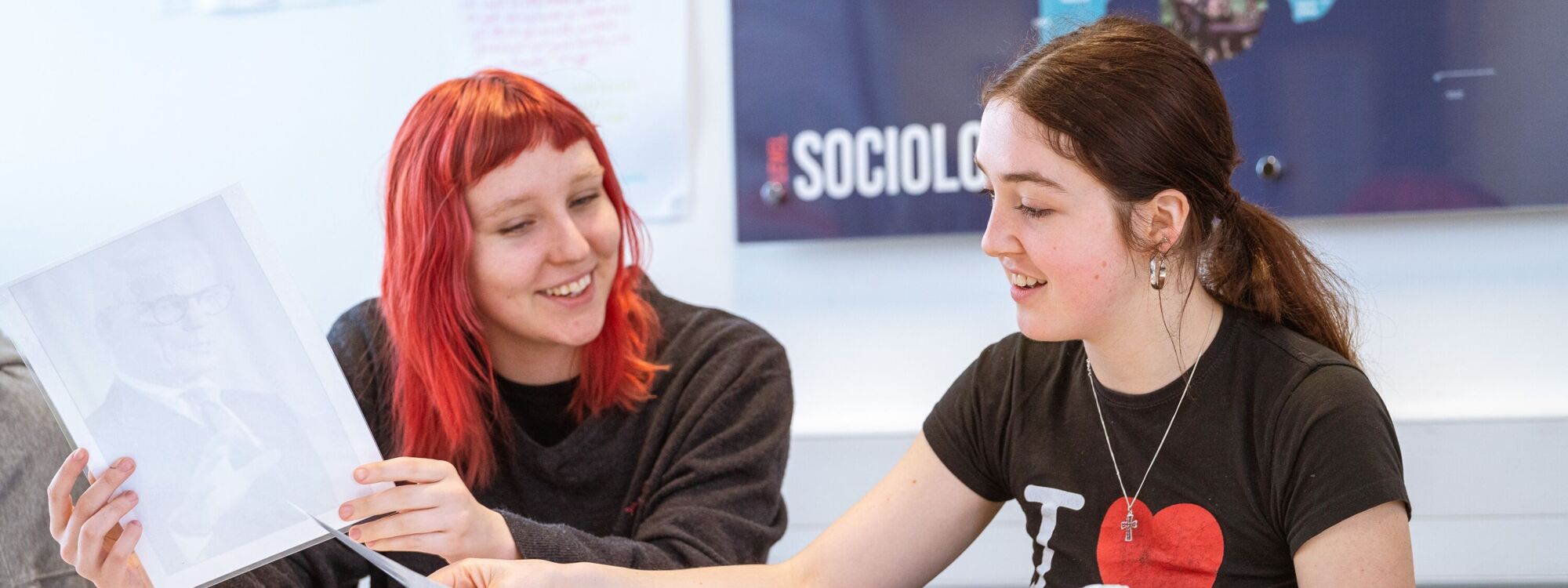Sociology is the study of how society works. It explores how the culture and groups we live in shape and control human behaviour. Sociology investigates the link between media and crime, why people join cults or become terrorists, why education can be damaging to young people and why the rest of the world is becoming more religious while Britain’s religious beliefs decline.
Entry requirements
To study at RSFC, you must have achieved a minimum of five GCSEs or equivalent at grade 4 or above across four separate subjects, including GCSE Mathematics and/or English Language.
Why study this course?
You should study Sociology if you want to question why people behave and think the way they do. For instance, a person’s gender and ethnicity can affect the way they dress, the subjects they pick at school and the roles they perform in the family. This subject will make you more socially aware and help you to think independently and critically about who has power in society, who creates conflict and ask how to solve problems such as poverty and racial discrimination.
What can you expect from A level Sociology?
Expect the best and be prepared to be surprised. Sociology will leave you questioning everything and everyone around you. It will open your eyes and allow you to look at the world in a way you have never seen it before. In a safe, non-judgmental environment, you will have the opportunity to explore these issues, get involved in debates and develop life skills.
KEY TOPICS - YEAR 1
Paper 1: Education with theory and methods:
• Sociological perspectives on the role of education
• Differential achievement in education – why do some groups perform better or worse in education?
• Educational policies
• Research methods
- Methods in context
Paper 2: Beliefs in society:
• Social groups and levels of religiosity
• Sociological perspectives on the role of religion
• Religious organisations’ global context
• Secularisation
• Science and ideology
YEAR 2
Paper 2: Families and households;
• Sociological perspectives on the role of the family
• Family diversity
• Family social policies
• Domestic division of labour
• Childhood
• Demography
Paper 3 : Crime and deviance with theory and methods;
• Theories of crime
• Reasons why some social groups commit crimes
• Issues in crime such as punishment and victimology
• Contemporary issues in crime such as green crime and the media
• Debates and theories
What can I do with a qualification in Sociology?
Students with a Sociology A level can enter careers in law, the civil service, teaching, the criminal justice system, journalism, politics, HR and social work. Many of our students go on to study Sociology, Criminology or Law at degree level. The skills developed through completion of the course will be invaluable in higher education and employment.
How is this course assessed?
You will be assessed at the end of the two-year course through the completion of three examinations.
Who is this course for?
Do you have an interest in current affairs? Do you want to work with people who may be disadvantaged in society and want to find ways to improve their situations? Do you have a critical eye and a thirst for knowledge and answers to key issues in contemporary society? Then this is the subject for you!


